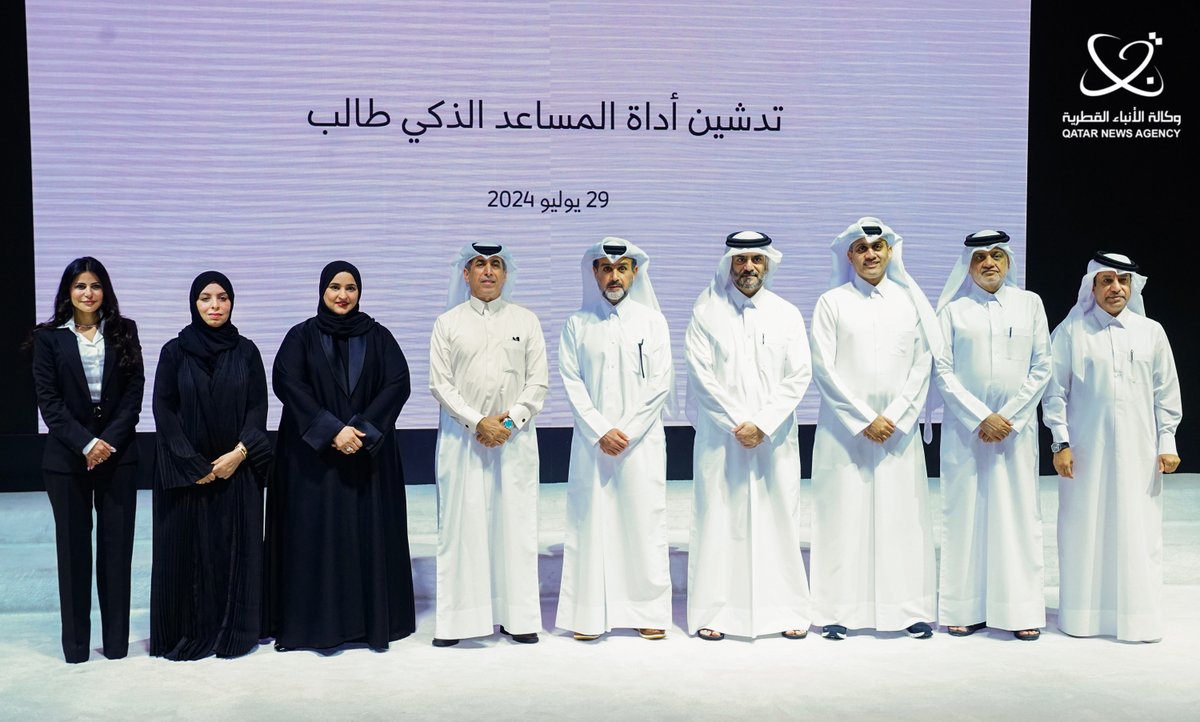The Ministry of Education and Higher Education in Doha, Qatar, recently launched a new smart assistant tool called ‘Talib’. This advanced chatbot is designed to provide immediate support and intelligent responses to queries from students, parents, and the public in both Arabic and English languages. The inauguration of this tool signals the Ministry’s commitment to digital transformation in education and its efforts to keep up with the rapidly evolving technological landscape.
Dr. Ibrahim bin Saleh Al Nuaimi, the Undersecretary of the Ministry of Education and Higher Education, emphasized the importance of leveraging cutting-edge technologies in education to enhance the learning experience for students. He highlighted the role of AI in streamlining processes and providing support to all stakeholders in the education sector. The Ministry’s strategic initiatives, in line with the Qatar National Vision 2030, aim to harness the potential of AI to drive innovation and advancement in education.
The decision to name the smart assistant tool ‘Talib’ reflects the Ministry’s focus on students as the central figures in the education system. By incorporating AI technologies into its systems and services, the Ministry aims to provide seamless support and assistance to students, parents, and the public. The launch of ‘Talib’ is a significant step towards enhancing communication and optimizing services for all users, with a focus on efficiency and effectiveness.
Dr. Al Nuaimi emphasized the Ministry’s commitment to staying abreast of AI technological advancements and utilizing them as part of its digital transformation strategy. The implementation of AI-powered systems and services, such as ‘Talib’, is a key component of the Ministry’s efforts to enhance communication and provide timely responses to queries. By leveraging AI technologies, the Ministry aims to improve the overall educational experience and create a more efficient and effective learning environment for all stakeholders.
The Ministry of Education and Higher Education is also planning to host the Gulf Cybersecurity Forum 2024 in October, along with other activities related to cybersecurity. Additionally, there are plans to expand professional schools in the upcoming academic year to meet the growing demand for specialized education. These initiatives reflect the Ministry’s commitment to continuous improvement and innovation in the education sector, in line with Qatar’s broader digital transformation goals.
Dr. Mona Salem Al Fadhli, the Director of the Information Systems Department at MoEHE, emphasized the department’s dedication to adopting cutting-edge technologies and enhancing its digital systems. By leveraging AI technologies, business intelligence, and virtual reality, the Ministry aims to achieve its digital transformation goals and align with Qatar’s Digital Transformation Strategy 2030. The launch of ‘Talib’ marks a new era of AI-powered systems and services that are designed to keep pace with technological advancements and enhance the overall educational experience for students, parents, and the public.











